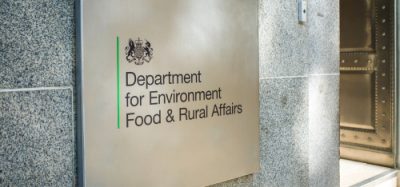FareShare: An amazing organisation doing amazing work
- Like
- Digg
- Del
- Tumblr
- VKontakte
- Buffer
- Love This
- Odnoklassniki
- Meneame
- Blogger
- Amazon
- Yahoo Mail
- Gmail
- AOL
- Newsvine
- HackerNews
- Evernote
- MySpace
- Mail.ru
- Viadeo
- Line
- Comments
- Yummly
- SMS
- Viber
- Telegram
- Subscribe
- Skype
- Facebook Messenger
- Kakao
- LiveJournal
- Yammer
- Edgar
- Fintel
- Mix
- Instapaper
- Copy Link
Posted: 17 October 2022 | Chris Elliott | No comments yet
Chris Elliott takes a moment to reflect on two of the key themes of the Food Safety Conference – food security and accessibility – and shines a light on the excellent work of FareShare in helping to create a fairer and less wasteful industry.


Last week at the Food Safety Conference hosted by New Food, I chaired a panel on the three hard truths – inflation, insecurity and inaccessibility.
We’ve been hit by multiple challenges over the last few years, coming as fast and frequently as the UK’s chancellors… And these very unsettling times have seen our reliance on food charities increasing at an alarming rate. So, I wanted to take this opportunity to highlight the amazing work that one of these charities is undertaking, namely FareShare.
What is FareShare?
FareShare is the UK’s biggest charity fighting hunger, whilst simultaneously tackling food waste. Two grand challenges rolled into one!
The charity receives unsold or unwanted (but safe and nutritious) food from the food industry and redistributes it. This is achieved through a large network of charities and community organisations across the country.
To undertake such a massive operation, FareShare has more than 30 warehouses scattered across the UK and an army of volunteers that help sort, store and deliver this food across the partner network.
In addition, unsold food from several retailer convenience stores are made available to local charities for collection, notifying them via an app. A wonderful use of technology, I must add.
The meals and food parcels that the charities and community organisations produce go to support the most vulnerable in our society and 75 percent of the charities that FareShare supports help families with children.
Tackling the dichotomy of food waste and hunger
We all know massive amounts of food is wasted every year, yet millions are going hungry. This is a morally untenable scenario.
Trying to put more accurate figures around this really brings home the true severity and absurdity of the situation. More than two million tonnes of perfectly good food is wasted every year in the UK, enough to make 1.3 billion meals. All this waste going on, while approximately 11 million people, including 2.5 million children, in the UK are in a state of food insecurity.
The pandemic and the current cost-of-living crisis have dramatically increased the number of people in dire straits. In fact, 75 percent of the charities and community groups supported by FareShare say demand is as high as ever, with FareShare redirecting 129 million meals in the last financial year.
In order to address this issue, we must gain a clearer understanding on the situation.
Food waste, the environment and taxation
The hard economic truth is that it’s often cheaper to let unsold food rot in the ground, be used for animal fed, anaerobic digestion or send it to landfill, than redistribute it to people in need. I’ll add here that just because it’s true, doesn’t make it right!
Labour shortages in the UK agriculture sector as a result of Brexit have highlighted examples of this: fields full of rotting fruit and vegetables. Meanwhile in others areas of Europe, there are shining examples of how governments have helped address this issue. For example, France redistributes 400 percent more ‘waste food’ than in the UK through tax incentives. In the current UK tax melee, wouldn’t this be such a positive for the latest Chancellor to announce? It would make so much environmental sense – the Carbon Trust says redistributing food avoids the waste of nine times more CO2e than is emitted by FareShare’s operations.
Future needs will be even greater
There are now more than 2,500 food banks in the UK, a staggering number for a G7 country. The previously mentioned Chancellor, in a honest interview, stated that we are in for a period of austerity and there will be very tough times for many ahead. It’s hard to imagine what the situation would be if it was not for organisations such as Fareshare and the network of outstanding charities and community groups that exist in our country.
We should all be extremely grateful for their efforts and support in any small way we can. I am also extremely grateful to Helen Sisson, technical Director of 2 Sisters Food Group and trustee for FareShare for providing me with so much information on its work and being able to offer such support to those in need on top of a hugely demanding job. To me, Helen is an unsung hero of the UK food sector and what it stands for.
Our UK Government should take note (but we know they won’t).
Related topics
Environment, Food Security, Food Waste, Supply chain, Sustainability, Technology & Innovation, The consumer









